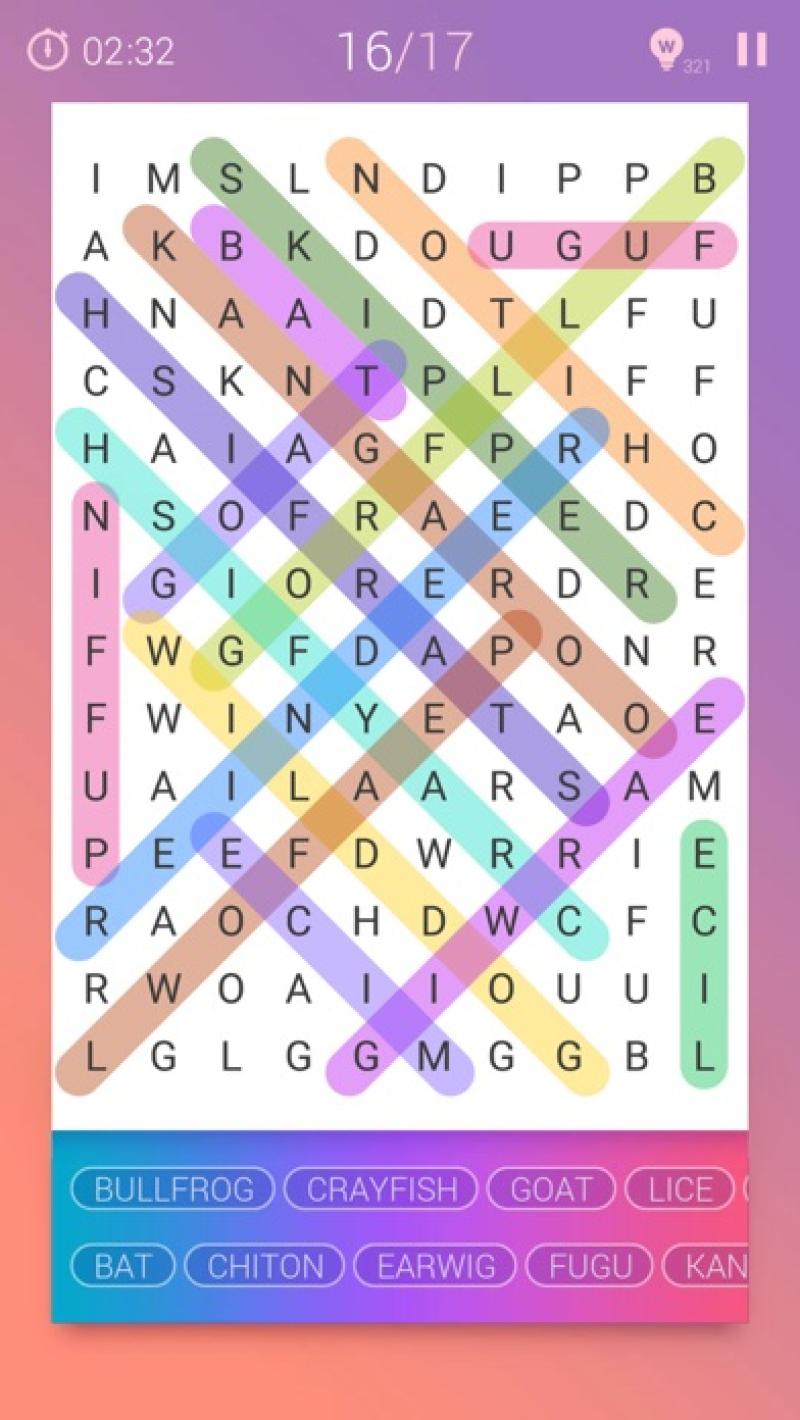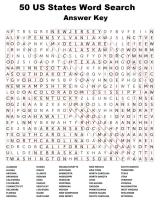How to cheat on a word search?
Cheating on a word search goes against the spirit of the activity, which is meant to be a fun and challenging exercise for your mind. Word searches are typically designed for enjoyment and cognitive engagement, and finding the words legitimately is part of the experience.
If you're finding a word search difficult, here are some tips to enhance your skills without resorting to cheating:
Take Your Time:
- Word searches are meant to be a leisurely activity. Take your time, and don't rush through it.
Read Carefully:
- Read the list of words you need to find carefully. This can give you clues about the theme or category of words, making it easier to spot them in the grid.
Scan in Sections:
- Rather than scanning the entire grid at once, focus on small sections. This can make it less overwhelming and help you find words more efficiently.
Use a Pencil:
- If you're unsure about a word, lightly circle it with a pencil. This allows you to go back and double-check later without spoiling the challenge for yourself.
Practice Regularly:
- The more word searches you do, the better you'll become at spotting patterns and identifying words. It's a skill that improves with practice.
Work with Others:
- If you're doing a word search with friends or family, work together to find the words. It can be a collaborative and enjoyable experience.
Search Backwards:
- Don't limit yourself to searching only left to right or top to bottom. Words can be hidden diagonally or even backward.
Look for Word Endings:
- Focus on word endings. Once you find part of a word, it might be easier to identify the rest.
Remember that the goal of a word search is to have fun and challenge your mind. Cheating not only undermines the purpose but also denies you the opportunity to develop and enjoy the mental engagement that comes with solving puzzles. If you find a particular word search too challenging, you might consider trying one with a different difficulty level or theme.
Strategies for Effective Word Search Completion:
Here are some strategies to help you complete word searches successfully without resorting to cheating:
Scanning Techniques:
- Systematic Approach: Scan each row, column, and diagonal systematically, focusing on one direction at a time. This helps ensure you don't miss any words hidden in plain sight.
- Backwards and Forwards: Scan both forwards and backwards to catch words that may be spelled in reverse.
- Letter Combinations: Pay attention to frequently occurring letter combinations like "TH," "CH," and "NG," which are often found in hidden words.
- Cross-reference with the Word List: While scanning, refer to the list of words and actively look for them rather than passively searching. This helps focus your attention and prevents overlooking potential matches.
Word Recognition Enhancement:
- Visualize the Words: As you scan the puzzle, try to visualize the complete word based on the letters you see. This helps your brain identify potential matches more easily.
- Break Down Difficult Words: If you encounter a long or challenging word, break it down into smaller parts and search for those sections first. This can make it easier to recognize the full word.
- Use the Shape of the Word: Pay attention to the shape of the letters and how they connect to form the word. This can be a helpful clue, especially for longer or diagonal words.
- Focus on Cross-Checking: Look for intersecting letters that might be part of multiple words. Once you identify a letter in one word, use it to find other words that might share that letter.
Practice and Improvement:
- Regular Practice: Completing word searches regularly helps improve your scanning skills, word recognition, and overall puzzle-solving abilities.
- Start with Easier Puzzles: Begin with easier puzzles and gradually progress to more challenging ones as your skills develop. This helps build confidence and prevent frustration.
- Time Yourself: Time yourself as you complete puzzles to track your progress and identify areas for improvement.
- Challenge Yourself: Try different types of word searches with varying difficulty levels and themes to keep your practice engaging and stimulating.
- Participate in Online Games: Online platforms offer word search games with interactive features and time challenges, providing a fun and engaging way to improve your skills.
Additional Tips:
- Use a pen or pencil to mark off found words. This helps avoid confusion and ensures you don't revisit the same area repeatedly.
- Take breaks if you get stuck. Stepping away for a short time can help refresh your mind and come back with a fresh perspective.
- Don't give up easily. Word searches can be challenging, but with persistence and practice, you can improve your skills and overcome any obstacle.
By implementing these strategies and dedicating time to practice, you can significantly enhance your word search skills and enjoy the satisfaction of solving puzzles without resorting to cheating. Remember, the key is to be patient, persistent, and have fun while learning.



